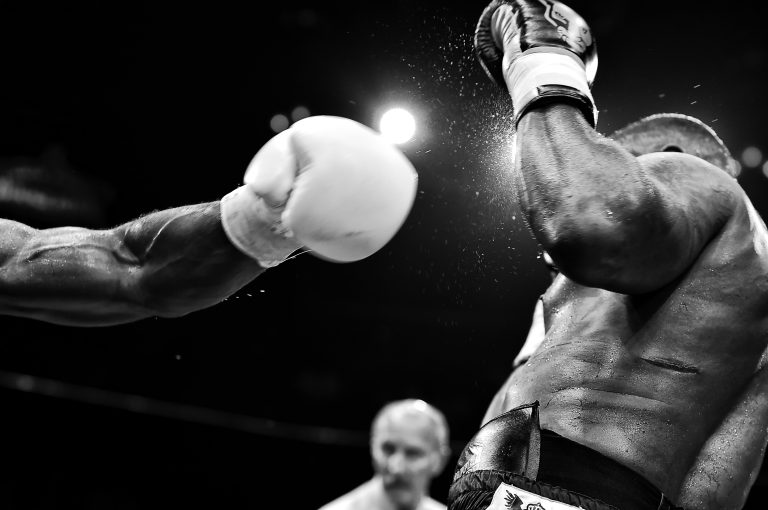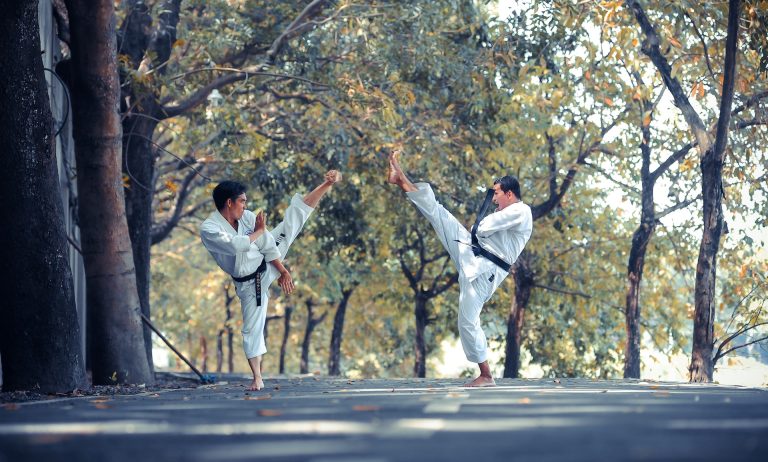Does Karate Cause Brain Damage?
Martial arts, including karate, have been practiced for centuries and have become increasingly popular all over the world. However, as with any physical activity, there are concerns about the potential risks and injuries that can result from these practices. One of the most common concerns is whether karate causes brain damage.
Karate is a form of martial art that involves striking with punches, kicks, and knee strikes. It is also a contact sport that involves sparring with an opponent. While it is true that the sport involves physical contact, it does not necessarily mean that it causes brain damage. In fact, most martial arts schools prioritize safety and emphasize techniques and training to prevent injuries.
Some studies suggest that karate and other martial arts may even have cognitive benefits, including improving focus, memory, and executive function. A study published in the Journal of Psychiatric Research found that compared to a control group, karate practitioners demonstrate enhanced cognitive function and control.
However, it is important to acknowledge that any physical activity involves some risk of injury. According to a 2014 study in the Journal of Athletic Training, concussion is one of the most common injuries sustained in martial arts competitions. Also, in a 2019 study in the Brazilian Journal of Sports Medicine, researchers found that nearly 70% of participants had experienced at least one injury while practicing karate.
Still, it is important to differentiate between the risks and the causes of brain damage. A concussion, which occurs when the brain is jolted or shaken within the skull, can cause temporary changes in brain function. However, it is not necessarily indicative of permanent brain damage. Similarly, injuries such as bruises or cuts are not necessarily connected to brain damage.
One of the main concerns when it comes to brain damage and martial arts is repeated head impacts. A 2018 study published in the Journal of Neurotrauma found that even minor head impacts can lead to changes in brain structure and function. However, the study also emphasized that the frequency and intensity of these impacts play a major role in determining the extent of the damage. Though there is no conclusive evidence, some researchers believe that repeated head impacts may lead to chronic traumatic encephalopathy (CTE), a neurodegenerative disease that can cause symptoms such as memory loss, impulsive behavior, and mood changes.
However, it is important to bear in mind that the vast majority of karate practitioners do not experience chronic head impacts that could lead to CTE. Most martial arts schools emphasize safety and use protective gear such as helmets, gloves, and mouthguards to prevent head injuries. They also teach techniques that emphasize control and respect for one’s opponent to avoid unnecessary physical harm. Many of the techniques are designed to have more impact on the body than on the head.
In conclusion, while there are risks associated with karate and other martial arts, brain damage is not necessarily one of them. The most important factor in avoiding injury in any physical activity, including karate, is to prioritize safety and adhere to proper techniques and training. By doing so, the risks of injury can be minimized, while the benefits – including improved cognitive function and physical fitness – can be enjoyed.
Does Karate Cause Brain Damage?
Introduction
Karate is a popular martial arts practice that involves various techniques such as kicks, punches, and strikes. Although it has been practiced for centuries, many people have raised concerns about the potential risk of brain damage associated with karate. In this post, we will explore some commonly asked questions about whether or not karate causes brain damage, backed by scientific evidence.
What is Brain Damage?
Before we dive into whether karate causes brain damage, it’s essential to understand what brain damage is. Brain damage refers to injuries that occur to the brain that can affect normal brain functions. These injuries can occur due to various factors such as head injuries, infections or neurological conditions such as Alzheimer’s, Parkinson’s or ALS.
Does Karate Cause Brain Damage?
Many people have raised concerns about whether or not karate causes brain damage since it is a full-contact sport. They worry that repeated blows to the head can damage the brain over time. However, there is no concrete evidence that supports this claim.
A study published in The American Journal of Sports Medicine showed that karate fighters had no significant changes in brain function, regardless of whether they had concussions or not. The study analyzed 125 karate fighters‘ brain functions between the ages of 18-35 and found no differences between those who had concussions and those who didn’t. The study also reported that the frequency of concussions in karate fighters was low compared to other contact sports such as boxing, where the incidence of traumatic brain injury is much higher.
Are There Any Risks Involved in Karate?
That doesn’t mean there are no risks involved in karate. Karate can still lead to injuries such as sprains, fractures, and bruises. But, with proper safety measures, these risks can be minimized. It’s essential to wear protective gear such as helmets with a face shield, mouthguards, gloves, and shin guards while practicing to help protect yourself from injury.
What Can You Do to Minimize the Risk of Brain Damage?
If you practice karate or any martial arts, take the following steps to reduce the risk of brain damage:
1. Wear proper safety equipment such as helmets with a face shield, mouthguards, gloves, and shin guards
2. Refrain from training or competing if you have suffered a concussion or any other head injury.
3. Learn techniques correctly and practice them under the guidance of an experienced instructor.
4. Avoid sparring or training with someone who is significantly stronger or more experienced than you.
5. Listen to your body- if your body feels fatigued, stop, take a break and seek medical attention if needed.
Does Karate Cause Brain Damage?
Introduction
Karate is a martial art that has been practiced for centuries. While it is a popular form of self-defense and physical exercise, some people have raised concerns about its potential impact on the brain.
In this guide, we will explore the question of whether karate can cause brain damage. We will examine the scientific evidence, the risks and benefits of karate practice, and provide tips for minimizing any potential risks.
What is Karate?
Karate is a martial art that originated in Okinawa, Japan, and is now practiced all over the world. It is a form of unarmed self-defense that focuses on striking techniques such as punches, kicks, and knee strikes, as well as grappling and joint locking techniques.
Karate training typically involves practicing specific punches, kicks, and forms (known as kata) with a partner or alone, as well as sparring and conditioning exercises. It is often referred to as a „hard style“ martial art because of its emphasis on powerful strikes.
The Risks of Karate
Like any physical activity, there are risks associated with practicing karate. The most common types of injuries are strains and sprains, including sprained ankles and knees, and muscle strains in the legs and back.
However, some people have expressed concern about the potential impact of karate on the brain. The concern is that repeated blows to the head could cause brain damage, particularly among those who practice karate competitively.
While there is some evidence to suggest that repeated blows to the head could cause brain damage over time, there is limited research specifically on karate practitioners. However, several studies have examined the impact of repetitive head impacts in other sports, such as football and boxing.
One study in particular found that retired professional football players who reported a high number of concussions during their career had a higher risk of experiencing cognitive decline, depression, and behavioral changes in later life. While this study did not look specifically at karate, it does suggest that repeated head impacts in sports could pose a risk to brain health.
The Benefits of Karate
While there are risks associated with karate, there are also many potential benefits. Karate can be an effective form of exercise, helping to improve cardiovascular health, muscular strength, and flexibility. It can also improve balance, coordination, and reaction time, which can be beneficial for everyday activities.
Karate can also help to develop self-discipline, focus, and mental toughness. Practicing karate requires a great deal of concentration and attention to detail, which can carry over into other areas of life.
Finally, practicing karate can be a fun and rewarding hobby. Many people find that the physical and mental challenge of karate training is a great way to relieve stress and improve overall well-being.
Minimizing the Risks
If you are considering practicing karate, there are steps you can take to minimize the risk of injury. First and foremost, it’s important to choose a reputable instructor who emphasizes safety in training.
It’s also important to wear the proper protective gear, such as headgear, mouthguards, and gloves. These items can help to reduce the risk of injury during sparring and other practice activities.
Finally, if you have a history of concussions or other head injuries, it’s important to talk to your doctor before starting a karate practice. They may be able to provide further guidance on how to avoid potential risks.
Conclusion
In conclusion, while there are some risks associated with practicing karate, there is limited evidence to suggest that it can cause brain damage specifically. With proper instruction, protective gear, and guidance from a healthcare professional, it is possible to minimize any potential risks and enjoy the many benefits of this popular martial art.
Inhaltsverzeichnis






